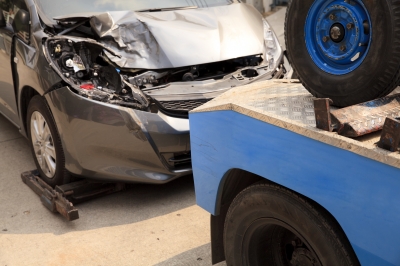Your teen has just gotten her driver’s license. There’s a problem: even though she passed, she doesn’t earn the best rates from the insurer and if you have a son the rates may be even worse. What are you to do? Well, some parents engage in a process called “fronting.” This is when the parent represents to the insurer that he drives more than his daughter does on the insured vehicle. Don’t do this. You’ll end up in a world of hurt.
What Is ” Insurance Fronting”

Let’s say you compare a few quotes and decide it’s just way too expensive to list your child on a vehicle that will be primarily driven by him. You decide that you’ll just have the policy on yourself, list yourself as the primary driver, and allow your child to bebop all over town with that vehicle.
That’s called “fronting.” You’re “fronting” for your kid and, while you might think you’re justified in the face of ridiculously high premiums, you’re putting yourself and your child in danger.
According to Wikipedia, Another form of automobile insurance fraud, known as “fronting,” involves registering someone other than the real primary driver of a car as the primary driver of the car. For example, parents might list themselves as the primary driver of their children’s vehicles to avoid young driver premiums.
What Insurer’s Think
If you thought it was hard getting money from an insurance company when your coverage was legit, try getting it from an insurance company after you’ve “fronted” for your child. It’s nearly impossible. Why? Because insurance companies view the practice as insurance fraud.
It’s true that teens pay higher insurance premiums and for good reason, they are less experienced and more likely to take risks older drivers wouldn’t. So it costs insurance companies more to cover those risks. So what will the insurance company do about “fronting”? Well, it’s not always obvious what the consequences are for “fronting.” However, more and more insurers are becoming proactive. While you might not have your insurance policy canceled right away, it’s certainly possible.
The Consequences
Insurance companies can invalidate your insurance policy when they find out you’re “fronting.” Of course, this might not be their first option. Your insurer might just warn you about the consequences – might. Because the practice is becoming more common, insurers are becoming less lenient. But if your teen just got into a car accident? Good luck getting the claim paid. Sure, they’ll ask you all the standard questions about who was driving and the details of the accident. However, when your insurance company finds out that your child is the one who actually drives most of the time, you’re sunk. If you are lucky they might “only” reduce your coverage i.e. prorate the coverage based on the premiums actually paid. So if you were supposed to pay $2000/yr. for teen coverage and you only paid $1000 and they get a claim for $100,000 they might only pay $50,000 and stick you with the remainder pretty much defeating the purpose of having insurance in the first place.
Not only that, but your insurer may choose to prosecute you for insurance fraud if the situation warrants it. You could have your policy canceled, sued, and the insurer could make it nearly impossible for you to obtain future coverage from any other company.
The “Black Box” Option
One option when you purchase a vehicle for your teen, is to ask your insurer about “black box” options. Shop around for insurers to see if any are offering this program in your area. A “black box” or event data recorder is a data-logging device placed in the car. It monitors vehicle speed, braking, and maneuvering.
The better your teen is at driving, the lower the premium. It’s a pilot program being offered by some insurance companies in some areas of the country. While it’s not as cheap as “fronting,” it’s one of the best legitimate ways to saving serious cash on your child’s car insurance policy.
See Also:
- Car Insurance Savings That Most Drivers Overlook
- 2 Types of Mortgage Insurance
- Term vs. Whole Life Insurance – What Should You Choose?
- What are “Life Insurance Settlements”?
- 4 Key Questions to Ask When Doing Your Auto Insurance Research
Recommended by Amazon:
- Be Insurance Savvy: Home, Auto, Dwelling, Renter’s, Flood and other Personal Insurance Explained
- Ten Questions – The Insider’s Guide to Saving Money on Auto Insurance: Hidden Discounts Revealed
- Insurance for Dummies
- Questions and Answers on Life Insurance: The Life Insurance Toolbook
- New Life Insurance Investment Advisor: Achieving Financial Security for You and your Family Through Today’s Insurance Products
Image courtesy of Naypong / FreeDigitalPhotos.net

